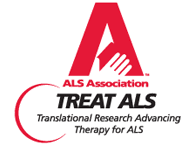If only we had a talent as good at getting the word out about ALS as Mr. Levinson did for his clients.
From today's Washington Post --
Author Peter J. Levinson, 74; Music, Entertainment Publicist
By Matt SchudelWashington Post Staff Writer
Sunday, October 26, 2008; C09
Peter J. Levinson, 74, a music and entertainment publicist who represented a who's who of show business stars and who had a second career as a biographer of musical figures, died Oct. 21 from a fall at his home in Malibu, Calif. In January 2007, he had amyotrophic lateral sclerosis, or Lou Gehrig's disease, diagnosed.
In 50 years as a publicist, Mr. Levinson helped guide the careers of such stars as Rosemary Clooney, Jack Lemmon, Art Garfunkel, Peggy Lee, Joel Grey and Phyllis Diller. He handled publicity for television shows and movies, including "Kramer vs. Kramer," which won the 1979 Academy Award for best picture.
He was credited with pitching an idea about the television show "Dallas" that ended up as a Time magazine cover story in 1980.
Mostly, though, Mr. Levinson toiled in the often barren field of jazz publicity at a time when the music he loved was losing popularity. His clientele read like a jazz hall of fame, including such luminaries as Count Basie, Artie Shaw, Dave Brubeck, Billy Taylor, Mel Tormé, Ramsey Lewis, George Shearing, Chick Corea, Maynard Ferguson and Wynton Marsalis.
"I've been hiring publicists since 1936," bandleader Woody Herman once said of Mr. Levinson. "This guy's better than any guy I've ever had."
Jazz writers across the country grew familiar with Mr. Levinson's deep, radio-quality voice on the telephone, as he called to announce a concert appearance or the release of a new album by one of his clients. In a recent letter, he wrote that he could no longer speak and was losing the feeling in his fingers. Nevertheless, through the use of a computer, he continued to work until his death.
In 2001, after more than 40 years as a publicist, Mr. Levinson turned to writing, publishing a biography of the troubled trumpeter and bandleader Harry James. He knew James for more than 20 years and, in an interview with the Philadelphia Daily News, recalled his first encounter with him at a nightclub in 1958:
"I saw how sad he was the first day I met him. Seeing him with a bar girl sitting in his lap, I felt sorry for him. I saw the other side of stardom. He had everything, but he had nothing."
Critic Nat Hentoff called Mr. Levinson's book about James, "Trumpet Blues," "one of the very few biographies of a musician I have read that not only told me much more than I thought I knew but compelled me to listen right away to the music again."
Mr. Levinson also published biographies of music arranger Nelson Riddle and bandleader Tommy Dorsey. In his 2005 Dorsey biography, he described how Dorsey gave Frank Sinatra his first big break and how Sinatra modeled his demeanor after Dorsey's "dynamic presence, the unquestioned authority that he exuded, his mercurial temper, and his combativeness."
He also revealed how Sinatra was able to break a lifetime contract with Dorsey, by which Dorsey was to receive one-third of Sinatra's future earnings: Underworld thugs supposedly shoved a gun in Dorsey's mouth and handed him an envelope stuffed with cash. The episode is said to have been the inspiration for the "offer he couldn't refuse" scene in "The Godfather."
Peter J. Levinson was born July 1, 1934, in Atlantic City and began writing about jazz as a student at the University of Virginia in the 1950s. After graduating, he served in the Army and moved to New York, where he found a job in the publicity department of Columbia Records. One of his Columbia projects was the landmark 1961 release of the recordings of 1930s blues master Robert Johnson.
In 1962, Mr. Levinson became the publicist for singer Jack Jones, and after a few years he opened his company, Peter Levinson Communications. He had offices in New York and Los Angeles before moving permanently to the West Coast in the 1980s.
In 1986, Mr. Levinson worked to get the U.S. Postal Service to release a postage stamp featuring Duke Ellington, the first time a jazz figure appeared on a stamp.
Shortly before his death, Mr. Levinson completed a biography of dancer Fred Astaire, which will be published early next year.
Survivors include his wife, former "60 Minutes" producer Grace Diekhaus; and a brother.













